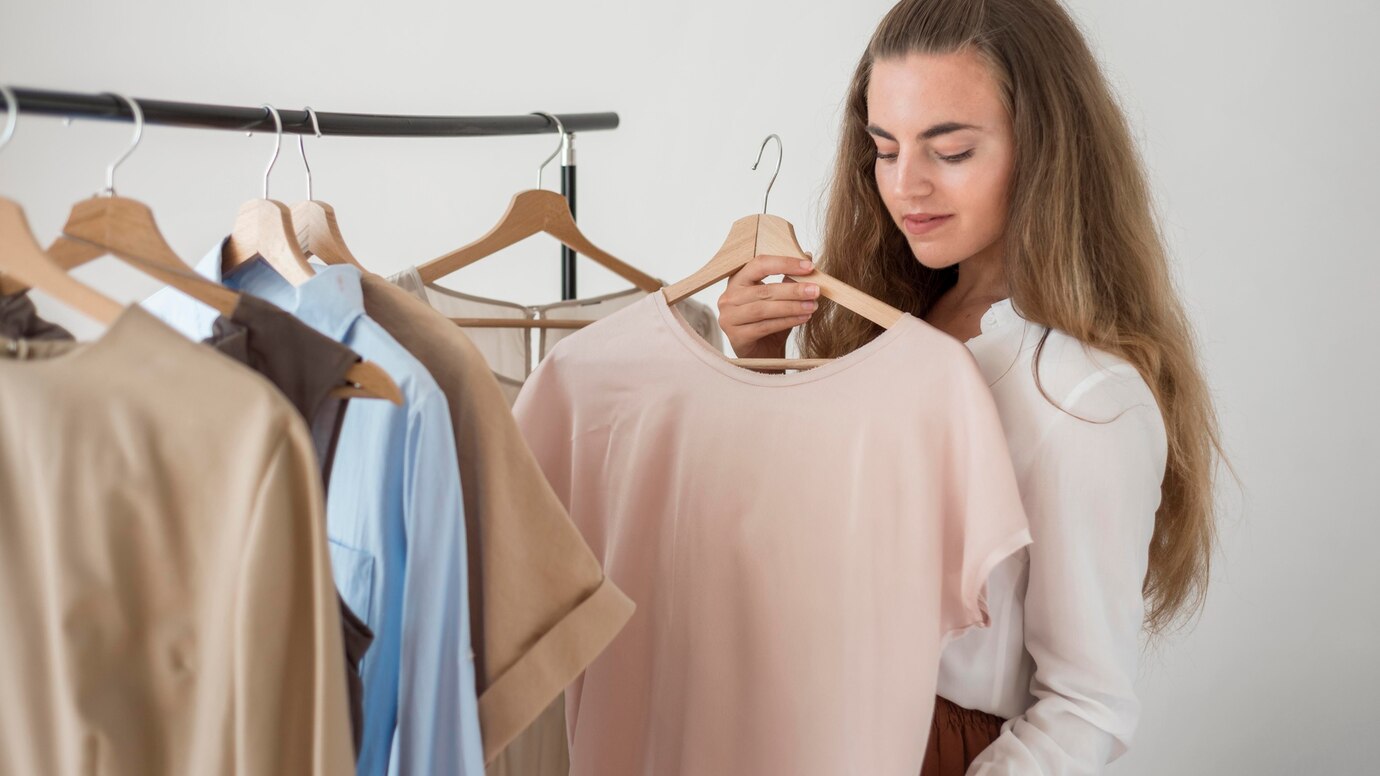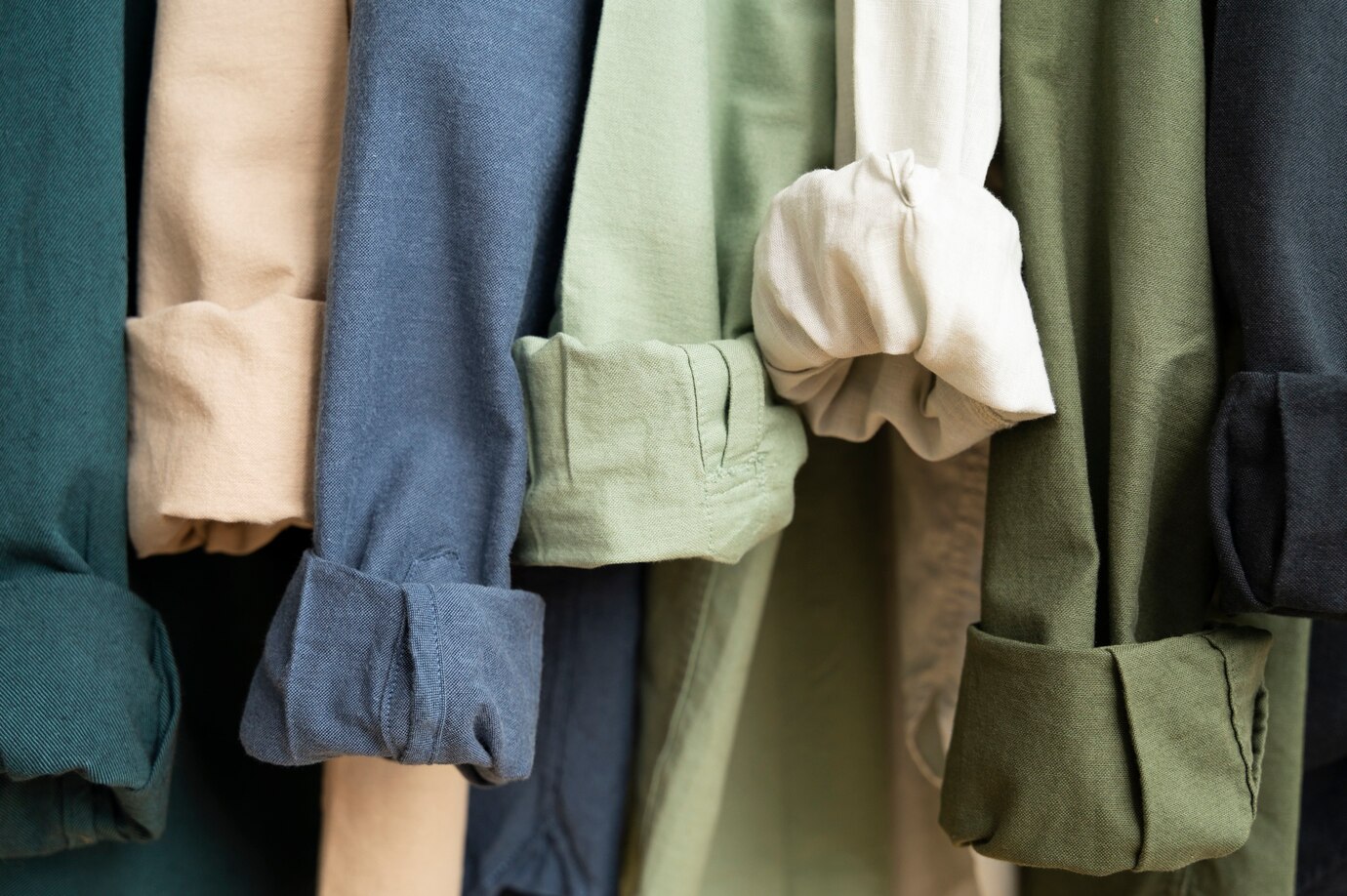
The Future of Sustainable Fashion in Retail
The sustainable fashion industry is rapidly evolving as consumers demand environmentally friendly and ethically produced clothing. With fast fashion’s impact on the planet becoming more evident, retailers are shifting towards green retail strategies that prioritise sustainability, transparency, and ethical production.
The rise of ethical fashion brands demonstrates that sustainability is more than just a trend—it’s a necessary transformation. From circular economies to innovative textiles, the future of sustainable fashion lies in reducing waste, lowering carbon footprints, and promoting ethical labour practices.
This guide explores the latest developments in sustainable fashion, the benefits of adopting eco-conscious practices, and the strategies retailers can implement to align with the future of ethical fashion.
The Growth of the Sustainable Fashion Industry

1. Consumer Demand for Ethical Fashion
Shoppers are becoming more aware of the environmental and social costs of the fashion industry. Reports indicate that over 60% of consumers consider sustainability when making fashion purchases, with younger demographics leading the shift towards ethical consumption.
2. The Role of Regulations in Sustainable Fashion
Governments worldwide are introducing stricter sustainability laws for the fashion industry.
Key Regulations Influencing Retailers:
- EU Green Deal: Calls for mandatory sustainability reporting and eco-design standards.
- Extended Producer Responsibility (EPR): Holds brands accountable for the waste their products create.
- Bans on Fast Fashion Practices: Some regions are restricting the production of ultra-fast fashion items to curb overconsumption.
Retailers that proactively comply with these regulations will be better positioned for long-term success in the sustainable fashion industry.
Green Retail Strategies for Sustainable Fashion

1. Implementing Circular Fashion Models
The circular economy is a key aspect of the future of sustainable fashion. Unlike traditional linear models (produce, sell, dispose), circular fashion focuses on keeping materials in use for as long as possible.
How Retailers Can Embrace Circular Fashion:
- Resale & Rental Services: Offering second-hand and rental options to extend the lifecycle of clothing.
- Upcycling & Repair Programs: Encouraging consumers to repair or repurpose clothing instead of discarding it.
- Take-Back Schemes: Collecting old garments for recycling or resale to minimise textile waste.
2. Sustainable Textile Innovation
Fashion brands are investing in alternative materials that reduce environmental harm.
Popular Eco-Friendly Fabrics:
- Organic Cotton: Uses less water and fewer pesticides compared to conventional cotton.
- Hemp & Linen: Highly durable and biodegradable materials with minimal water usage.
- Recycled Fabrics: Made from post-consumer waste like plastic bottles or old garments.
- Lab-Grown & Vegan Leather: Sustainable alternatives to traditional animal leather made from mushrooms, pineapples, or recycled materials.
Retailers adopting innovative fabrics can reduce their ecological footprint while appealing to ethical fashion brands and eco-conscious consumers.
3. Reducing Fashion Waste and Overproduction
Overproduction contributes to massive textile waste, much of which ends up in landfills. Fashion brands must adopt green retail strategies to reduce excess inventory.
Solutions for Minimising Waste:
- On-Demand Production: Manufacturing items based on demand instead of mass-producing surplus stock.
- AI-Driven Inventory Management: Using data analytics to predict sales trends and avoid overproduction.
- Zero-Waste Design: Creating clothing patterns that use 100% of the fabric with no offcuts.
4. Ethical Labour and Fair Trade Practices
Sustainability extends beyond environmental efforts—it includes fair wages, safe working conditions, and transparency in supply chains.
How Retailers Can Ensure Ethical Labour Practices:
- Partner with factories that follow Fair Trade and ethical labour standards.
- Conduct independent audits of supply chains to ensure compliance.
- Offer traceability features for customers to track where and how products are made.
Retailers prioritising ethical labour attract socially conscious shoppers and improve brand credibility.
Ethical Fashion Brands Leading the Way
Several brands are pioneering green retail strategies and setting an example for sustainable fashion.
1. Patagonia: The Circular Economy Leader
Patagonia has revolutionised the fashion industry with its commitment to sustainability, including:
- Worn Wear program to repair and resell used items.
- Recycled materials in over 70% of its product lines.
- 1% for the Planet initiative, donating a portion of profits to environmental causes.
2. Stella McCartney: Luxury and Sustainability Combined
Stella McCartney is a luxury brand known for ethical and eco-friendly practices, such as:
- Using vegan leather and recycled fabrics.
- Advocating for cruelty-free fashion.
- Implementing closed-loop production systems to eliminate waste.
3. Eileen Fisher: Pioneering Slow Fashion
Eileen Fisher embraces responsible retail practices by focusing on minimalism and quality craftsmanship. Key initiatives include:
- Renew the program, which resells and upcycles old garments.
- Commitment to organic and regenerative farming for fabric sourcing.
- A focus on slow fashion, promoting timeless designs over seasonal trends.
These brands illustrate how the sustainable fashion industry is reshaping retail, proving that ethical business models can be profitable and scalable.
The Future of Ethical Fashion in Retail
As sustainability continues to reshape the retail industry, the following trends will define the future of fashion:
1. AI and Data-Driven Sustainability
Artificial intelligence is playing a growing role in sustainability by helping brands optimise supply chains, track emissions, and personalise product recommendations to reduce waste.
2. Growth of Second-Hand and Resale Markets
The rise of platforms like Depop, ThredUp, and Vestiaire Collective highlights a growing consumer preference for pre-owned fashion. More major brands are integrating resale options into their business models.
3. Blockchain for Supply Chain Transparency
Blockchain technology allows customers to trace the origins of their clothing, ensuring ethical sourcing and authenticity in sustainability claims.
4. Carbon-Neutral Fashion Brands
Many brands are committing to carbon neutrality by offsetting emissions, switching to renewable energy, and reducing transportation-related pollution.
5. Sustainable Digital Fashion
With the rise of virtual fashion, digital garments are emerging as a zero-waste alternative for social media and gaming platforms.
Retailers that embrace these innovations will stay ahead in the sustainable fashion industry while meeting the expectations of eco-conscious consumers.
Conclusion: The Retail Shift Towards Sustainable Fashion

The future of fashion lies in sustainability, innovation, and ethical production. As consumers continue to prioritise environmental responsibility, retailers must integrate green retail strategies to remain relevant. By embracing ethical fashion brands, reducing waste, and adopting circular models, businesses can drive long-term success while contributing to a more sustainable world.
Key Takeaways include the sustainable fashion industry is growing due to increased consumer awareness and stricter regulations. Retailers must implement green retail strategies, including circular fashion models, sustainable textiles, and ethical labour practices. Brands like Patagonia, Stella McCartney, and Eileen Fisher set the standard for sustainable retail practices. Future trends in fashion sustainability include AI-driven inventory, blockchain transparency, and second-hand resale markets. Ethical fashion is no longer a niche—it’s the foundation of the future of retail.
By prioritising sustainability, retailers can lead the way toward a more ethical and environmentally friendly fashion industry.


